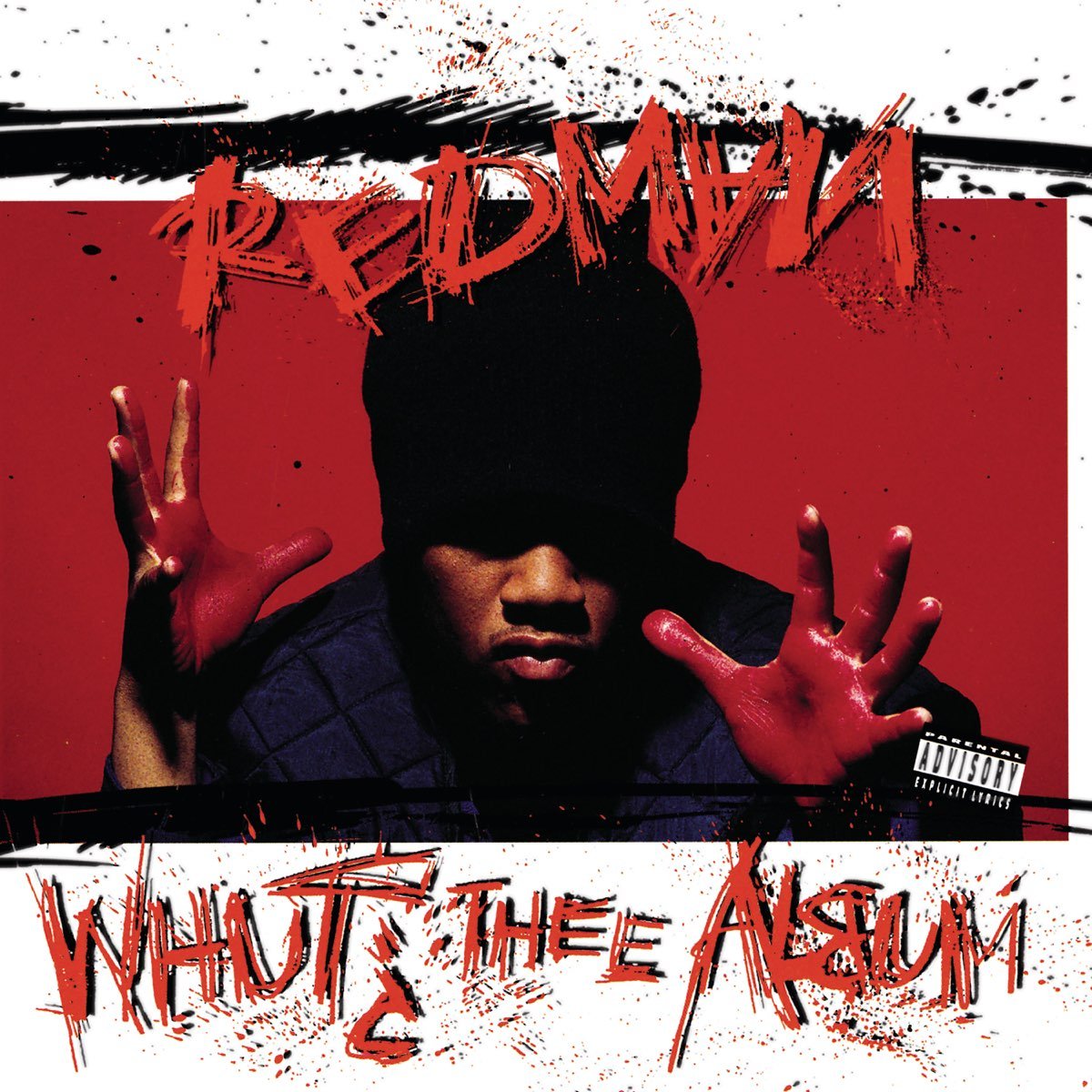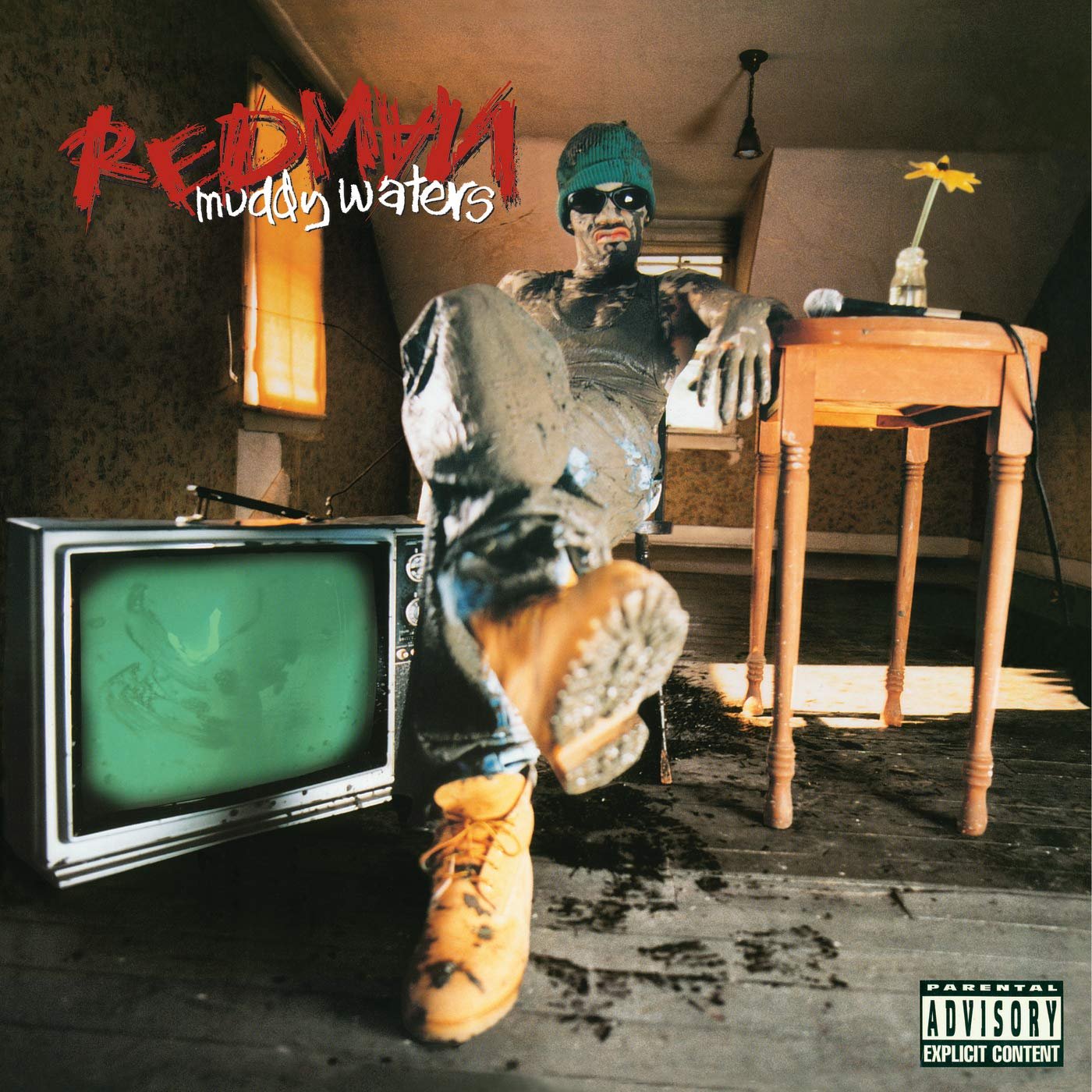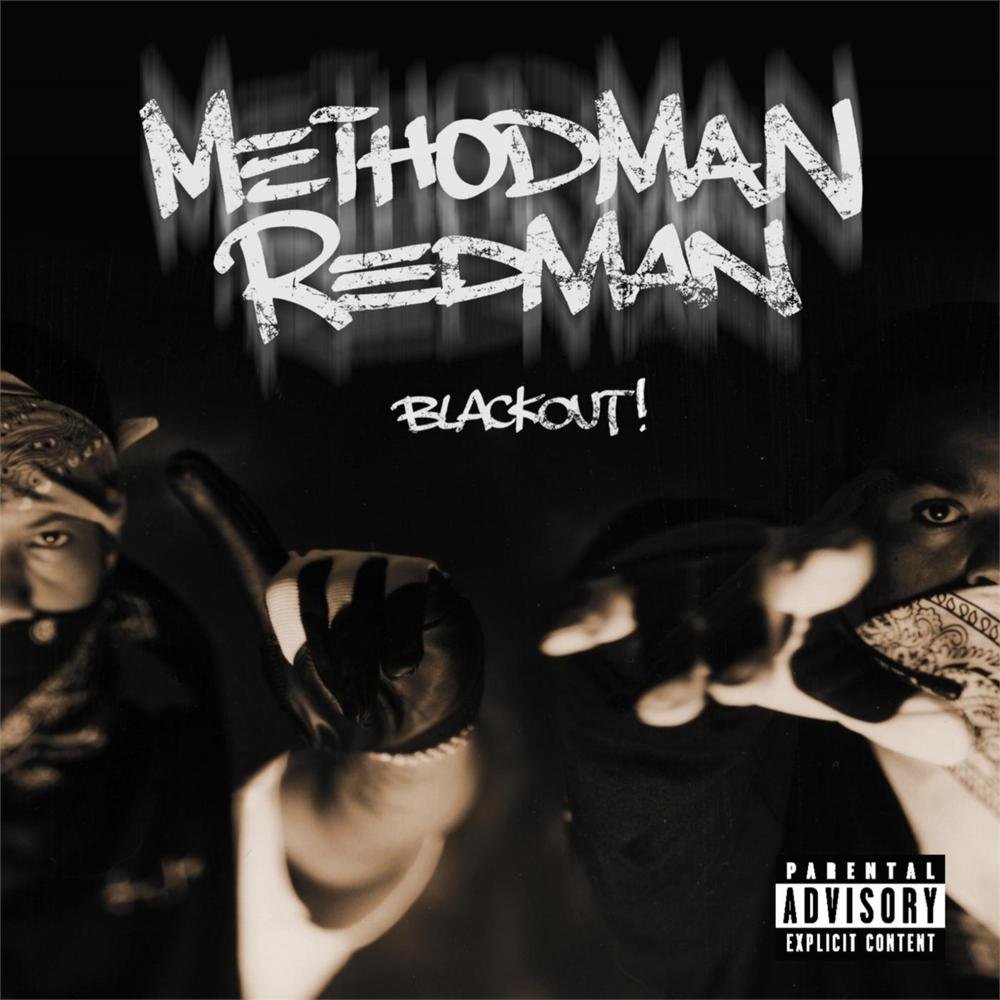Happy 25th Anniversary to Redman’s fourth studio album Doc’s Da Name 2000, originally released December 8, 1998.
Reggie “Redman” Noble is sort of a hip-hop universal adapter: plug him into any song and he makes it work. The Newark, New Jersey legend has a distinctive style and presence that works in any type of setting. And Redman has never let the setting change who he was. When he makes guest appearances, he kicks the same type of verse on a Montell Jordan track as he does on a Christina Aguilera or Cypress Hill song.
On his own albums, Redman is even more comfortable, and knows how to play to his strengths. Some look for artists to become more “well-rounded” as their careers go on, but to Redman’s credit, he worked to get better at what he was already great at doing, applying his distinctive off-kilter approach to each of his projects. With his fourth album Doc’s Da Name 2000, released 25 years ago, he continued his string of artistic and commercial success.
It’s Redman’s most commercially successful album, and his first to be certified platinum. He captured a large audience without compromising his sensibilities, remaining “the roughest rapper a DJ needle came across.”
Thematically, Doc’s Da Name has a lot in common with Redman’s previous three albums. It features a lot of tracks about how dope he is and how much he likes to smoke good green. But there’s also an underlying premise of the experience of living in Newark, a city where “the rats will whoop your motherfuckin’ ass” and people will use any type of hustle to survive.
The majority of the production on Doc’s Da Name is from the core three producers that shaped Redman’s previous two albums, including his mentor Erick Sermon, Rockwilder, and Redman himself. Like his earlier efforts, the tracks are filled with muddy funk, but with an often-darker edge. Things occasionally work towards the smoother side, and overall there’s a definite blues edge to some of the beats.
Redman has long had a penchant for releasing lengthy albums, and Doc’s Da Name follows suit, spreading 24 tracks over 70 minutes. However, the album never drags. For one, Redman knows not to overstay his welcome, keeping things brisk when they call for it. For another, the Funk Doc is one of the few artists who knows how to use skits correctly. On this album, they help break up the material, as taken together, they’re designed as a broadcast of “W Fuck All Y’all Radio.” It also helps that most of the skits, ranging from ads for psychics to the continuing saga of a stolen satellite van, are funny enough to have replay value.
Watch the Official Videos:
The album begins on an appropriately dark and confrontational note with “Let Da Monkey Out.” With its hard-driving guitar sample and simian war cries, the song opens things on the ideal rambunctious note, serving as an updated version of “Time 4 Sum Aksion.” Redman rhymes, “I hold fort with a quart of Olde E from Newark / I tell lies under oath if it please the court / Supreme force, in the swamps with the green moss / Bug repellant suit, busting machines off.”
“I’ll Bee Dat!” is one of the album’s brightest moments and one of the most universally beloved Redman tracks. The first single from the album is also one of the best singles that the Funk Doc has ever released, creating a deceptively laid-back vibe, as Redman proclaims that his “first name must be ‘Fuck you!’” The underlying message in the song, beneath the braggadocio, is about Redman being comfortable with who he is.
He shares similar sentiments on “I Don’t Kare.” Though it seems like a straight-ahead battle track, much of it is about Redman accepting his role within hip-hop. Sure, he believes he should be receiving mainstream radio play and selling 4 million records, but he’s too happy recording the “raunchy shit” to chase dreams of pop status.
However, sometimes Redman engages lyrical braggadocio for its own sake, and the Funk Doc continues to excel when he feels like cutting lose. “Get It Live” is one of the most underappreciated tracks in Redman’s discography, a rough and rugged lyrical ass-kicking. The track consists of just a spare drum track, a literal two-note bassline, and occasional scratches, which allows Redman verbal fire to shine bright. He boasts, “I jump off stage and kick him in the fade / I’m lifted like my back carry helicopter blades / Fuck a police raid, this a bumrush / You’ll agree like Siskel and Ebert with your thumbs up.”
“Keep On ’99” is another of the album’s unexpected highlights, since Red somehow makes rhyming over a sample of Ray J’s “Can’t Run, Can’t Hide” sound incredibly rugged. He proclaims, “And when you lust for hardcore music to bust / Trust that n***a who bubble more than Alka-Seltzer Cold Plus.” “Brick City Mashin’” features Redman kicking his most complex lyrical stylings, effortlessly delivering tongue-twisting stanzas over a sample of Tom Tom Club’s “Genius of Love.” He keeps things lively, rapping “Sheee-it, take two tokes, I’m dope riding over notes / Overload your periscope, Doc da most” and “Guerilla maneuver on an intruder / I pack like Sinbad pack the house in Aruba.”
Like many of his peers at the time, Redman also included a few “covers” on Doc’s Da Name, or at least adaptations of previous hip-hop hits. “Beet Drop,” his re-interpretation of the final minute of the Beastie Boys’ “The New Style,” seems unnecessary. However, “Jersey Yo!,” a recreation of Ice Cube’s “Once Upon a Time in the Projects,” is a stronger entry. Redman re-samples Betty Davis’ “Shoo-B-Coop and Cop Him,” but transforms the song into a dedication to his love for weed and the city of his birth.
Doc’s Da Name is dotted with guest appearances. Often they don’t work as well as Redman’s solo tracks, but they’re always interesting. “Da Goodness,” the album’s second single, finds Redman joining forces with lyrical dragon Busta Rhymes, blasting rapid-fire stanzas over a sample of Buddy Merrill’s cover of “Caravan.” “Well All Rite Cha” is a solid team-up with frequent rhyme partner Method Man. It’s not as good as their previous collaborations, but the two continue to display the chemistry that led them to record multiple albums together.
Enjoying this article? Click/tap on the album covers to explore more about Redman:
“Down South Funk,” Redman’s collaboration with the other two thirds of the Def Squad, (Sermon and Keith Murray) is probably the album’s weakest track. There’s nothing particularly “down south” about the meandering track produced by Sermon, even though all three emcees shine, particularly Murray. But coming off the exceptional collaborative album El Niño (1998), released earlier that year, it’s a bit of a let-down.
The brief “My Zone,” featuring the unknown Markie, ends up being on the album’s strongest tracks, just by virtue of Redman’s amazing opening verse. He goes into attack mode, rhyming over the slow yet urgent track, “Walls start to bleeding when my jaws is leaking / Doc do 200K first week your label call a meeting / Yeah, I’m gonna let the gorillas up in your building / Kick your door, shoot up the ceiling.”
Redman generally hasn’t done introspection on the vast majority of his releases, but he dabbles in a bit of self-reflection a few times on Doc’s Da Name in the most Redman way possible. He uses “Da Da Dahhhh” to contemplate his upbringing, fortunately not taking himself too seriously as he describes “being a young man doing grown man shit.” He lends humor to memories of his childhood over an acoustic guitar sample from Don Julian’s “It’s a Sad Song,” reminiscing about catching cheap Kung Fu flicks, stitching Lee patches, and getting motivated by hearing EPMD’s “It’s My Thing.”
Redman continues his epic tales as the rhyming superhero on “Soopaman Lova IV,” the shortest and most non-descript of the entries in this saga. Here Redman presents a Soopaman Lova in crisis, ready to forsake crimefighting and become a villain. He grumbles that he’s down on his luck, behind in child support payments, utility belt in the shop, and frustrated because the kids now idolize Batman. The bluesy guitar sample helps make it feel like the grittiest entry in the series, but Red’s usual humor keeps things light.
Doc’s Da Name ends on an experimental note, as he teams up with famed British producer/DJ Roni Size for “I Got a Seecret.” The late ’90s marked the rise of Jungle, trip hop, and other forms of Electronica, which was of course EDM before EDM. These days, rapper’s dalliances with EDM barely cause the bat of an eye, but back then, making overtures into the realm of electronic dance music wasn’t entirely embraced. Maybe it was due to pre-existing traumas from hip-house.
“I Got a Seecret” isn’t Doc’s Da Name’s best moment, but it’s reasonably enjoyable as these types of songs go. Roni Size provides a stripped-down soundscape that doesn’t overwhelm the listener. He creates a high BPM track, complete with simple baselines and beeps, whistles, and vocals that dash across the track. Of course, Redman delivers a self-aware performance, using all the hallmarks of “normal” verses, while still acknowledging the inherent weirdness of him rhyming on a Jungle track.
Doc’s Da Name is the final entry in an incredible four-album run by the Funk Doc. His follow-up, Malpractice (2001), isn’t necessarily bad, but it’s certainly more uneven than his other efforts, as you could tell he was actively trying to recapture the formula that led to his previous successes, rather than letting it come naturally.
It’s fitting that Redman achieved an increased level of success with Doc’s Da Name not by compromising his music, but by taking the same approach that he’d always taken. Even when recording electronic dance tracks and waxing philosophic about his upbringing, he always keeps it live and represents the Bricks.
LISTEN:
Editor's note: this anniversary tribute was originally published in 2018 and has since been edited for accuracy and timeliness.





